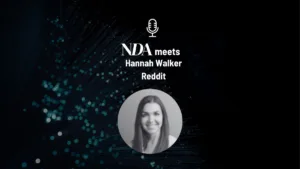Premium publishers have lost out in today’s digital ecosystem, with much of the monies going towards the platforms and slices of advertising cash lost between the layers of the third-party middlemen.
“Publishers struggled when the rise of third-party data partners undermined the importance of first-party data, seeing their valuable audiences bought somewhere else at a fraction of the cost,” says Tanya Field, Co-founder and Chief Product Officer of Novatiq.
The balance of power will continue to reside with the big platforms and social channels, says Steven Filler, UK Country Manager at ShowHeroes Group, but adds: “Publishers have been relevant for hundreds of years and I expect those who continue to innovate and invest to remain relevant for the foreseeable future.”
Publishers struggled when the rise of third-party data partners undermined the importance of first-party data, seeing their valuable audiences bought somewhere else at a fraction of the cost. Now, with privacy regulations tightening, the value of first-party data is in the ascendance. Publishers are ideally placed to take advantage of this market development.
Yet, as Tim Cronin, AAX VP of Sales, says that there is opportunity ahead, particularly around elevating publishing’s brand play – though it will take a leap of faith and lots of collaboration.
He says: “It’s hard to change the status quo while always chasing revenue. My opinion is that premium publishers have to come to an agreement on how they will sell their ad inventory in the future. Our industry has hired many data scientists over the years. Instead, premium publishers should ask leading economists to help them find the right balance between supply and demand, as premium has always been based on a level of scarcity.
“Changing the buy-side mindset won’t be easy. It will require a publisher-first solution, an alliance of premium publishers, and an agreement on a defined approach.”
Change is coming, though, according to Filler. “I don’t think this is a significant change in strategy for publishers but perhaps the industry has been doing a better job of promoting the benefits of quality publishers at a time when we’ve all become so much more aware of the impact of fake news and negative content on society.”
He continues: “I think advertisers recognise the increased importance of trusted brand safe editorial environments vs the fake news and negativity often generated by the platforms, but at the same time buyers are still looking for easy ways to invest, and can’t sacrifice performance.”
It is these brand-safe, quality environments that give DIY Magazine’s Rupert Vereker hope for the future. Vereker, CEO of DIY Music Limited is also a big believer in collaboration and publishers to leverage what it is that sets them apart.
He says: “Publishers need to look at where they sit within their subject or remit and wider business ecosystem.
“Within music technology fundamentally changed the way music was distributed and consumed with the arrival of streaming platforms. This has refocused the business into a relentless, always on, consumption model, threatening its very cultural significance.”
It recently worked with Spotify and its agency Universal McCann WW to promote its emerging artists playlist Our Generation, with DIY Magazine providing unique artist content as well as promoting it.
He also suggests that first party data will help publishers diversify their revenue streams, such as ecommerce and bespoke partnerships.
“The positive, we hope is that publishers can return to providing an enjoyable experience and go back to providing cultural contribution without the distraction of clickbait, ‘fake news’ links et cetera, all of which have made no contribution to sectors driven by passion like music.”
This is the year that the publishing sector thrives again, according to Field. Now, with privacy regulations tightening, the value of first-party data – and thus a publication’s unique audiences – is in the ascendance.
She concludes: “Those publishers who embrace the change that is happening, work hard to maintain an open web, and move ahead of the market will be the ones who win in this new era.”









